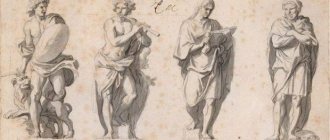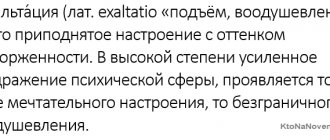Socionics can bring great benefits to a person who wants to understand it; it not only helps people understand themselves , but also makes it possible to build useful and healthy relationships with their colleagues, relatives and just acquaintances.
Knowing the type of people in your environment, using the socionics relationship table, you can always understand what communication with them will bring us: joy and benefit, or a waste of energy, time and nerves.
How to push a man to develop a relationship? Advice from psychologists will help you!
Functions
Socionics is currently used in various fields.
The test for determining the socionic type is used in different countries to help school graduates decide on their future profession ; employers use this test to select future employees in order to build a cohesive and effective team, as well as to understand whether the employee can cope with the position for which he is applying.
This typology is taught in some business schools and institutes in the departments of psychology.
Any person who wants can determine his socionic type and use this knowledge in order to find out the strengths and weaknesses of his personality and further develop himself and make the right choices on his life path.
And determining the personality types of other people will help you get to know them better and find the right approach to them.
Areas of use
Knowledge of the basics of socionics gives good returns in the following cases:
- Staffing classes and study groups. A harmonious combination of the temperamental characteristics of the types contributes to a friendly working atmosphere and automatic resolution of discipline problems.
- Subject-differentiated training in high school and university seminars, where the priority will be the “club”, discussion method of considering issues.
- Individual approach to students to provide opportunities for self-realization.
Knowledge of the types of people in socionics simplifies management consultations for organizations and contributes to the creation of a stable team of broad-spectrum employees and target groups for the implementation of specific tasks. Sociologically competent staff formation saves people’s money, time and nerves.
The best sociotypes in business
Pseudoscience makes an invaluable contribution to self-development and harmonization of relationships in the family and society. Perception of oneself, possible scenarios for the development of relationships helps to identify hidden mechanisms of quarrels, misunderstandings, and prevents the likelihood of irreparable mistakes.
Description of personality types and their characteristics
There are 16 personality types (male and female). Their names are the same for men and women; small differences for people of different sexes must be studied after determining the type.
The typology is based on the fact that each of the psychotypes has its own meaning in each of four parameters:
- logic (subordinate the whole world to logic) / ethics (understands the relationships between people),
- sensory (focus on real phenomena) / intuition (focus on thoughts),
- rationality (rational people plan everything)/ irrationality (irrational people don’t plan anything),
- extraversion (directed towards the outside world) / introversion (directed inward).
In addition to the use of the word type, in various literature one can find such terms as type of information metabolism (IMT), sociotype, psychotype.
A brief description of each of the 16 types looks something like this:
- Dostoevsky , an introvert who tends to take everything very personally. Such people, as a rule, are aloof from others and communicate only with good acquaintances and friends. You may get the feeling that they are not living, but watching the lives of others. They are very polite and well-mannered, they are never rude and always think about the convenience of others, trying not to interfere with them. But their main feature is their high ability to empathize. Dostoevsky knows how to empathize and literally feels what is going on in the souls of other people. Dostoevsky always sees what kind of relationships his acquaintances actually have and knows how people from his circle really treat him. He has a very rich world of feelings and experiences, but does not show this to anyone. He is always very neat and neatly dressed, and is critical of his own appearance.
- Jack London , a very hardworking person, his energy literally boils and splashes out. It seems that he is not able to just stand still or even walk slowly, he always needs to run somewhere.
He loves to show everyone how fearless he is, he is the first to rush into all sorts of adventures.He is inattentive to his own appearance, often looks disheveled and unkempt, loves life very much, constantly chats and jokes, strives to cheer everyone up, since he himself is an incorrigible optimist and is always in high spirits.
- Stirlitz knows how to make decisions quickly and accurately, and always acts intelligently and logically.
He likes to take the initiative and be in the center of everyone's attention, is able to work for a very long time, and practically does not get tired. He is always very confident in himself, never shy or timid; rather, on the contrary, he shows aggression towards others. Always ready, foaming at the mouth, to prove that he is right and defend his own ideas and beliefs. As a rule, he dresses beautifully and elegantly, and hates cunning and cheating. Considers honesty and adherence to rules to be one of his strongest traits and demands the same from others. - Hamlet always very serious, paints the world around him in very dark colors, and overly dramatizes. His thoughts are constantly occupied with global problems. Does not like to be in the center of attention and to manage other people, prone to constant doubts and hesitations. He puts feelings above reason; many would call Hamlet an incorrigible romantic. He takes any work very seriously, carefully thinks through and plans everything, is able to maintain strength until the very end, never burns out and always finishes what he starts.
He does not tolerate evil and evil people, but his concepts of good and evil are very original and based on his own preferences.He sympathizes with other people and tries to help them, sometimes too intrusively. From the outside he may seem arrogant and does not like to work in front of other people.
- Hugo has very bright and strong emotions, is able to light up in childhood and then carry his dream throughout his life.
Has a kind and compassionate character. Ready to take on any job, completes it very quickly and always finishes it. He doesn't like to talk too much, he is a man of action. As a rule, he achieves excellent results in his activities, but is not very confident in himself, and therefore needs praise from others. Hugo is a trusting and non-envious person; he is very happy when he manages to cheer up another person. Able to listen carefully to other people. He does not allow himself to be offended, but nevertheless is not aggressive. Pays too much attention to others, this distracts him from his own activities. Likes to choose new clothes, takes care of his appearance, hates disorder in everything, including appearance. He has few close friends, because not everyone can withstand his emotional pressure. - Robespierre has a very developed ability to analyze and is always very logical.
Loves to get to the bottom of things. He places high demands on himself and values justice very much. He does not like to choose his own clothes, he completely relies on his partner in this matter, and often does not think at all about what he is wearing. Doesn't like being bossed around. Very withdrawn and silent. He is secretive, does not like guests, reacts very sharply to criticism addressed to him, and takes very serious care of his health. - Gorky is always very calm and reasonable, adheres to his own system and routine in everything, and never panics.
He doesn’t like dreamers, just as he doesn’t like to fantasize. Able to listen carefully to other people, thoroughly studies any problem. Likes to be alone and think. In general, thinking is his favorite pastime. Closed, secretive, very patient and unpretentious, unobtrusive in communication. Doesn't like to waste time choosing clothes or doing any household activities in general. Does not trust other people and treats them with caution. Despite this, he is an excellent organizer, makes only the same demands on his employees as he does on himself, does not look down on them and is always ready to listen. Thanks to these qualities, Gorky becomes an excellent boss, which is why this type is also called a guardian in socionics. - Dreiser is very polite and tactful, easily ingratiating himself with other people. Doesn't show his emotions, doesn't tolerate betrayal. In the company of friends he is sociable and talkative, but among strangers he is almost always silent. He is extremely intolerant of any manifestations of untidiness and will never appear in public in bad clothes. Doesn't like to wait, is always very punctual.
- Don Quixote lives in the future, not the present.
Constantly needs new emotions. He's a good boss and generally has a good understanding of people. He loves compliments and positive emotions from others. He is almost impossible to scare; he likes to take the initiative in emergency situations. - Zhukov is a very purposeful person, ready to achieve his goal no matter what. He cares what others think of him. He always reserves the last word and has a stern and decisive character. Doesn't adapt to other people, always tells them what to do. He behaves decisively in any situation, does not like to talk about his feelings.
- Huxley loves to improvise, loves everything new, and expresses his thoughts very emotionally. Extremely sensitive when his ideas are criticized, ready to help others. Huxley is a man of mood and it changes very often.
- Napoleon is very proud of being loved and respected, does not hide his feelings, is arrogant and optimistic. Knows how to dress well and demands the same from others. He is not afraid of criticism, he is always very businesslike and proactive.
- Balzac has a very vivid imagination and almost never shows his emotions. He loves to analyze everything and is a very kind person by nature.
- Gabin is a very reserved and cold person, his movements are always precise and restrained.
Always finishes what he starts, very persistent. Calm under any circumstances, will not work if he does not consider the matter worth attention. - Yesenin , a dreamy romantic, likes to think rather than act. He doesn’t hide his feelings, falls in love easily, and always looks very elegant. Elegance is visible not only in his clothes, but also in all his movements. Loves to stir people up and evoke bright emotions in them.
- Dumas is always very friendly and optimistic. He hides his real experiences and never asks for help from others. Always cares about other people, does not know how to argue or refuse, and does not like to express himself brightly.
How to get out of a codependent relationship? Find out about this from our article.
Select the city closest to you
Moscow
St. Petersburg
Aachen Abakan Aban Avimor Alma-Ata Almaty Alushta Amsterdam Anapa Antalya Apsheronsk Armavir Arkhangelsk Astana Astrakhan Athens Baku Balakovo Balashikha Balashov Bangkok Baranovichi Barnaul Barcelona Belgorod Belombre Berdsk Biysk Blagoveshchensk Blagoveshchensk (Amur region) Borisogleb SK Bratsk Brno Bryansk Budapest Budennovsk Burgas Bushtyna Varna Vienna Vidnoye Vitebsk Vladivostok Vladikavkaz Vladimir Volgograd Volgodonsk Volzhsky Vologda Volchikha Voronezh Voskresensk Votkinsk Gelendzhik Georgievsk Gomel Goryachy Klyuch Denver Jacksonville Dinskaya Dmitrov Dnepropetrovsk Dolgoprudny Domodedovo Donetsk Dorogobuzh Dresden Yekaterinburg Essentuki Zheleznogorsk Zheleznodorozhny Zhi Tomir Zhukovsky Zaporozhye Zvenigorodka Zelenograd Zimovniki Ivanovo Jerusalem Izhevsk Irkutsk Yoshkar-Ola Kazan Kalach-na -Don Kaliningrad Kaluga Kamensk-Uralsky Kandalaksha Kemerovo Kerch Kiev Kineshma Kirov Kirovograd Chisinau Klimovsk Kovrov Kolomna Komsomolsk-on-Amur Korolev Kostanay Kotka Krasnoarmeysk Krasnogorsk Krasnodar Krasnoyarsk Kremenchug Krivoy Rog Kuznetsk Kurgan Kursk Lazarevskoye Leninsk-Kuznetsky Lesnoy Liman Lipetsk Lisichansk Liski Lobnya London Lugansk Lutsk Lviv Lyubertsy Magnitogorsk Manchester Manganese Morocco Marseille Makhachkala Megion Melitopol Menzelinsk Miass Millerovo Mineral Waters Minsk Minusinsk Mogilev Mozhaisk Moscow Murmansk Mtsensk Mytishchi Naberezhnye Chelny Nazarovo Nalchik Nakhabino Nakhodka Not specified Nefteyugansk Nizhnevartovsk Nizhnekamsk Nizhny Novgorod Nikolaev Nice Novokuznetsk Novorossiysk Novosibirsk Novouzensk Novocherkassk Novoshakhtinsk Noginsk New York Obninsk Odessa Odintsovo Omsk Orel Orenburg Orekhovo-Zuevo Pavlograd Paris Penza Perm Petrozavodsk Podolsk Polotsk Prague Protvino Pskov Pushkin Pushkin Pyatigorsk Ramenskoye Revda Reutov Riga Rostov-on-Don Rybinsk Ryazan Salavat Salsk Samara San Mateo St. Petersburg Saransk Saratov Svatovo Sevastopol Severodvinsk Semipalatinsk Sergiev Posad Serpukhov Simferopol Smela Smolensk Soligorsk Sosnovy Bor Sochi Stavropol Stary Oskol Sterlitamak Stupino Sumy Syktyvkar Tambov Tashkent Tbilisi Tver Tel Aviv Timashevsk Tiraspol Tikhvin Tikhoretsk Togliatti Tomsk Toronto Tuapse Tuymazy Tula Tyumen Uzhgorod Ulan-Ude Ulyanovsk Usolye-Sibirskoye Ussuriysk Ust-Kut U fa Ukhta Frankfurt am Main Frolovo Khabarovsk Haifa Kharkov Helsinki Kherson Khimki Khmelnitsky Zurich Chara Cheboksary Chelyabinsk Cherepovets Chita Mines Shymkent Shchelkovo Elektrostal Engels Yalta Yamalo-Nenets Autonomous Okrug Pravokhettinsky Yaroslavl Yartsevo Yasinovataya
Typing
Who am I? How to determine your type? There are several different ways to determine your sociotype:
- First, you need to take a test to determine your type. This is the fastest method that is available to every person; the test is very easy to find on the Internet. You need to answer all questions extremely honestly, you don’t need to try to show yourself in a more favorable light.
- You can type people by appearance and by their behavior .
To use this method, you need to observe a person for some time, and you also need to know the distinctive features of all types. This method is less reliable than a test, but with its help you can determine the sociotype of your friends. For example, it is used to determine the sociotype of V.V. Putin. Many agree that his type is Robespierre. - Typing in the form of an interview . In order to use this method, you need to contact a specialist who will determine the sociotype based on an interview, observation of a person’s behavior, and a test. This method can give the most reliable results.
Socionics rating
| Typing | Name | One of the typings |
| 185 | Alexey R. | Most often, I like to philosophize myself rather than rely on someone else’s existing reasoning (although... |
| 149 | Grey )) | Private furniture production in my city. Huge competition due to the abundance of small entrepreneurs... |
| 70 | Philip P. | Man creates his own life. Probably, it’s just that this is the most relevant for me at the moment…. |
| 60 | Evgeniy B. | Some of the people will float to Mars, but their colony will depend on the Earth. The Muslim East is political... |
| 41 | Anna Kruchinina | To be honest, the question is not entirely clear to me... The structure of production (in telecom, for example) is... |
Compatibility table of socionic types
Info table:
This table shows inertial relationships, that is, relationships that develop between representatives of two different types:
- D , dual relationships. The most comfortable relationships, where you don’t need to adapt to each other. Dual, a partner that complements a person.
- PD , semi-dual relationship. Comfort in communicating with such a partner gives way to bewilderment and disappointment, and then again to comfort.
- A , activation relations. Communication begins immediately, but then the partners get tired of each other.
- M , mirage relationships. In such relationships, partners relax and rest.
- PP , the relationship is the complete opposite. Very unstable relationships, disputes and mutual accusations arise in them.
- Z , mirror relationships. In such relationships, one partner always takes actions under the influence of the words of the other partner.
- K , conflict relationships. These relationships always begin calmly, but then inevitably lead to conflict and severance of ties.
- T , identical relations. Partners in such relationships have excellent mutual understanding, but are unable to help each other.
- ro , family relations, relations like distant relatives, formal politeness and nothing more.
- se , superego relationship. Partners respect each other. In such relationships, the partner appears to be an ideal that arouses interest.
- d , business relations. There is no friendship, as well as interest in a partner, only a working relationship.
- kt , quasi-identity relations. This is a relationship in which the partners do not understand each other at all.
- Revision relationships. In them, P (the auditor) constantly monitors and notices the weaknesses of P (the auditor).
- Social order relations. P (transmitter) looks down on the weaker and unequal p (receiver).
The type of intertype relationships allows us to predict the level of comfort in possible relationships between representatives of two different types.
Astrology2
Although astrology has been around for centuries, horoscopes only became popular sources of information in the twentieth century. The first excitement arose in 1930, when Princess Margaret was born into the family of the Dukes of York. Then the editor-in-chief of the popular British publication Sunday Express, John Garden, wondered about creating a column that would attract public attention to this news.
A unique idea came into his head - he turned to the palmist and astrologer Cheiro for help in drawing up a “life map” for the princess. As a result, a now popular part of entertainment portals and publications was born - the horoscope. Since then, astrological forecasts have been extremely popular among readers of all ages and social groups.
Even those who are not very inclined to believe in astrology have at least once in their lives resorted to the method of checking compatibility with their chosen ones using this science.
For example, an Aries woman and a Taurus man can live a long and eventful life together. A rather passive and calm Taurus will always be fueled by the irrepressible energy of a fiery girl. While a woman sees in such a partner a strong shoulder and a guarantee of stability in the relationship.
But with a slow and efficient man of the Cancer sign, the Aries woman will have a hard time. Usually in such an alliance multiple conflicts occur due to very small misunderstandings. The compatibility of men and women here tends to zero.
For those who believe in astrological predictions, this method of checking compatibility may seem extremely attractive. However, it is always worth remembering the presence of individuality, characteristics of upbringing and character. These three aspects influence the longevity and fruitfulness of relationships much more than the options for the development of family life destined by the stars and astrologers.
Quasi-identity relations
There are no quarrels, but many arguments that are never fruitful. It is impossible to prove anything to each other. They talk about the same things, are interested in the same things, but from completely different points of view.
© 1986 Vaisband I. D. “Working material on socionics.”
Relations of peaceful coexistence with coincidence of strengths and weaknesses and divergence of values and interests. From the point of view of model A, the program function of one “quasi-person” corresponds to the demonstrative function of another, creative - observational, role - activation, pain - suggestive.
Not what it seems
sensory is responsible for sex and everything connected with it . Depending on which of them - black or white - is valuable for the team, two psychosexual pairs are distinguished: victim-aggressor and infantile-caring .
Let me make a reservation right away: both “victim” and “infantile” are just socionic terms. Don't forget about this! Here's a fresh first-hand story: a typist told a man that he was allegedly a victim. There was no limit to his indignation. “What are you talking about! I'm not a victim! - the man barked and, to prove this, he tried to slam the typewriter’s face into the nearest doorframe. So, as they say, nothing personal - simple terminology.
Caring and infantile: the game of “mother-daughter”
Caring and infantile people are the owners of white value sensory . They are distinguished by softness, leisurely sensuality and attention to the shades of a wide variety of sensations. Their interaction is soft touches, muffled sounds, deep halftones. Those with a strong white sensory often express affection with warm hugs, tender kisses, or handmade gifts such as a baked cupcake or a knitted scarf.
I'll tell you another story that I know first hand. My friend, the one who suffers from a “soft and gentle man,” somehow decided to hit her chosen one in the very heart. She dressed herself in an incredibly sexy cat costume and went to impress her chosen one across the city.
It's late autumn. Apart from lace, a scarf, boots and an autumn coat, she is wearing absolutely nothing. She comes to her man. The door opens, the coat flies open... It was assumed that in this place he would be stupefied and die of passion. He will squeeze his cat in his arms and...
“But you’ll catch a cold like that!” - the chosen one exclaimed and almost dragged the cat into the apartment by the scruff of the neck. Drink hot tea and wrap in warm socks.
Need I say that both were indignant? She - because no one ever squeezed her in his arms. He - because how is that possible!
Triads.
The triad is formed by three personality types. From a psychological point of view, the most interesting are dual triads, i.e. those that include one dual pair, and the third member of the triad is in an activation relationship with one and a mirror relationship with the other member of the triad. There are sixteen such triads:
- Don Quixote - Dumas - Hugo
- Don Quixote - Hugo - Robespierre
- Don Quixote - Dumas - Robespierre
- Hugo - Robespierre - Dumas
- Zhukov - Yesenin - Hamlet
- Zhukov - Maxim - Hamlet
- Zhukov - Yesenin - Maxim
- Hamlet - Maxim - Yesenin
- Napoleon - Balzac - Jack
- Napoleon - Jack - Dreiser
- Napoleon - Balzac - Dreiser
- Jack - Dreiser - Balzac
- Huxley - Gaben - Stirlitz
- Huxley - Stirlitz - Dostoevsky
- Huxley - Gaben - Dostoevsky
- Stirlitz - Dostoevsky - Gaben.
In each such triad there are only dual-activation-mirror relationships.
Mirror relationships
It's difficult for two. Both constantly strive to teach and change each other. The appearance of the 3rd member of the quadra, who is the dual of one of them and the activator of the second, makes this collective very pleasant. It’s better to communicate not one on one, but with other members of your quadra, then everything will be fine. In these relationships, the partners are quite similar - they are both ethical or logical, sensory or intuitive, but one is an extrovert and the other is an introvert. They also differ on the “rationality – irrationality” scale. With such interaction, there is an active exchange of information on strong functions. What one speaks or thinks about, the other implements without further ado. They have a lot to learn from each other, although sometimes this leads to the temptation to lecture their partner. Conflicts are unlikely here.
© 1986 Vaisband I. D. “Working material on socionics.”
Mirror relationships are interesting for communication and joint activities; partners have common values and often interests; Constructive criticism is possible. The strengths and weaknesses are largely the same. From the point of view of model A, the program function intersects with the creative function of the “mirror”, the role function with the pain function, the suggestive function with the activation function, and the observation function with the demonstrative function.
Numerology4
Along with esotericism and astrology, the science of the meaning of dates is able to explain whether a particular person is suitable for us or not. There are no particular difficulties here - the main thing is to find out the date of birth of a potential partner. We add all the numbers until we get a specific number and check the degree of compatibility. Let’s say for those born on April 4, 1993, the destiny number is 3 (4+4+1+9+9+3=30, 3+0=3).
For a couple where both partners are under the protection of one, fate promises serious competition that can destroy their union. Number 1 indicates that a person values his personal space, is a bright individual and will not tolerate restrictions on freedom.
The love affair between one and three will last, on the contrary, for a very long time. Destiny number 3 speaks of the lightness of nature of its ward. In the union of numbers 1 and 3 there will be a lot of fun, a partnership-type relationship, and both members of the couple like to actively spend their free time.
Business relationship
Relationships of this kind are calm, even, the partners understand each other well in their creative function, they are frank, but they do not know how to help each other or support each other morally. Business relationships develop into a rivalry of behavioral styles, requiring constant probing of a competitor who is not inferior to you. In a mobilized state, relationships improve, partners quickly unite against a common enemy or common difficulty. A calm state worsens them, and grievances over trifles begin to arise. A couple can eagerly look for weaknesses in each other's positions. Business relationships are based on logic. They make people calculating, weighing and evaluating everything from a pragmatic point of view. One logical plan is replaced by another, everyone insists on their own version. In a welded business couple, feelings are entirely subordinated to the logic of achieving success. Business relationships strengthen the power sensory of partners, make them more competitive, and develop the ability to realistically assess the balance of power. A business couple should not take on long-term tasks. These relationships encourage partners to achieve short-term goals that promise tangible returns. Business relationships are also built on a balance of power. But, unlike the superego, here the partners do not restore, but on the contrary, they strive to upset the balance in their favor. These relationships are tiring with a constant struggle for authority, leadership, and significance. In disputes, they are not looking for the truth, but are looking for weaknesses in the position of the other side. In business relationships, partners act using seemingly similar methods, but achieve completely different goals. Therefore, competition is growing, pushing both back. After rethinking their actions, the partners again come together for a new leap forward and an even more dangerous failure. Everyone believes that the goal set by others is incorrect. At the later stages of development of business relationships, any desire to be similar to each other disappears.
© 1986 Vaisband I. D. “Working material on socionics.”
Relations of business equality with elements of rivalry and competition with different goals of partners. From the point of view of model A, the program function of one partner falls on the role function of the other (hence the competition and struggle for leadership in relationships), the observational function falls on the suggestive one, and the creative, painful, activation and demonstrative functions coincide (common interests and cooperation usually lie in the creative zone partner functions).











